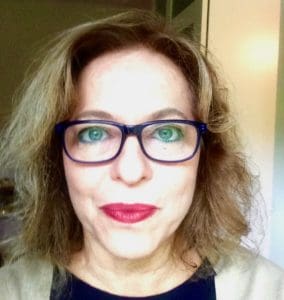A Fresh Cultural-Relational Outlook of Conflict. Member Spotlight: Tzofnat Peleg-Baker
Tzofnat is a teacher, trainer, facilitator, consultant, mediator, and coach in the Middle East, Europe, Africa, and the U.S. She is an adjunct professor teaching conflict management and negotiation at Rutgers University Business School and faculty at Portland Community College teaching inclusive cultures and leadership. Tzofnat earned a Ph.D. in social psychology with a specialty in relational and conflict transformation and diversity and inclusion from Vrije University (VUB), Belgium, in cooperation with Taos Institute, US, a Ph.D. (ABD) and M.A. in social psychology with a specialty in conflict and mediation from Rutgers University, and an M.A. in Communications from Indiana University.
Tzofnat first learned of MBBI and its mission when she attended an international mediation conference in Israel in 2008 and met Bob Creo, one of MBBI’s founding members. She values mediation is a tool to develop a language of dignity and respect towards one another.
Career Path
 Tzofnat started her professional career as an advertising executive working in the advertising industry in New York and later as a marketing executive in startups in Israel. However, she found herself yearning to work in more equitable, participative organizations.
Tzofnat started her professional career as an advertising executive working in the advertising industry in New York and later as a marketing executive in startups in Israel. However, she found herself yearning to work in more equitable, participative organizations.
She joined the Institute for Democratic Education in Israel, which led educational reforms by forming schools based on democratic values and engaging teachers, staff, students, and parents in decision-making. This work evolved into dialogic transformative programs in public schools and other organizations. These programs were based on equality and dignity principles to support more equitable and inclusive cultures.
Tzofnat served as the Head of Strategy at the Ministry of Justice, Israel, where she also was a member of the national team that introduced ADR and mediation in the country. She was a Board Member and facilitator in dialogue and peace organizations, where she led a collaborative-inclusive leadership program and facilitated inter-group dialogues between religious and secular groups, Jews, Christians, and Muslims, and Israelis and Palestinians. Her work heading the Community Dispute Resolution Center (CDRC) in Queens, NYC, reinforced the long way ahead to restructure our connections—to transform adversarial habits and Otherness discourse, deep-seated in a Western, individualist culture, into inclusive relationships based on values of dignity and equality.
Inspired by her practice in the democratic and conflict fields, she returned to academia to pursue a Ph.D. in psychology. Tzofnat’s interest in conflict stems from her passion to learning and ongoing improvement. She explores relational psychological dynamics promoting or inhibiting learning from differences and conflicts. Her research initially integrated cognitive, developmental, and social psychology to understand and improve third-party decision-making and mediation’s tangible and intangible outcomes through reflective practice. To that end, she developed the Structured Reflective Instrument (SRI), a four-dimensional reflective conceptual framework to help address explicit and implicit goals in conflict situations. She integrates interdisciplinary knowledge, including psychology, human development, learning, and organizational studies, to understand conflict and direct its trajectory to a constructive route.
Placing the individual at the forefront in Western cultures, she stresses imbalanced power relations, hierarchical systems, and social fragmentation. She expands consciousness to underlying cultural, social-psychological factors propelling defensive reactions and adversarial relationships using reflective models she developed. She also guides the exploration of alternative ways of relating. To cement new insights in daily life and generate long-term change toward a more inclusive being, she works with students and executives to develop and implement participative organizational practices and build cooperative capabilities. Her approach reveals a shift from the prevalent individual to a relational unit of analysis.
“If we could invest as much time in studying how to improve our relationships as we had studied the intrinsic nature of the mind, explaining the human experience within the individual, we might be able to open new horizons for reducing hostility and paving new ways to connect in more constructive ways.” To help illustrate this shift, she uses the example of bullying in schools that initially was approached from an individual viewpoint, centering on the personal characteristics of the bully and the victim. She explains that this common understanding endorses a narrow approach that implies a separation between bullies and victims and perpetuates punitive interventions. However, studies on bullying reveal that children switch roles: at times, they are bullying, and at other times they are being bullied or observed. Studies also indicate that most students find bullying unacceptable. Therefore, she says practices that aim to change the cultural context and improve social processes and practices carry a transformative potential.
“My purpose is to inspire new ways of thinking about default behaviors of separating, blaming, judging, and Othering, deeply ingrained in Western, modernist ethos and systems and co-create healthier, dignity-based connections supportive of human growth. Current challenges are not technical or straightforward but rooted in underlying cultural, social-psychological habitual ways of being that stand in the way of capitalizing on our differences. We must develop new personal and systemic capabilities for transforming adversarial inclinations into more democratic and inclusive ways of being.”
Article by Chloe Pan, MBBI Writer
